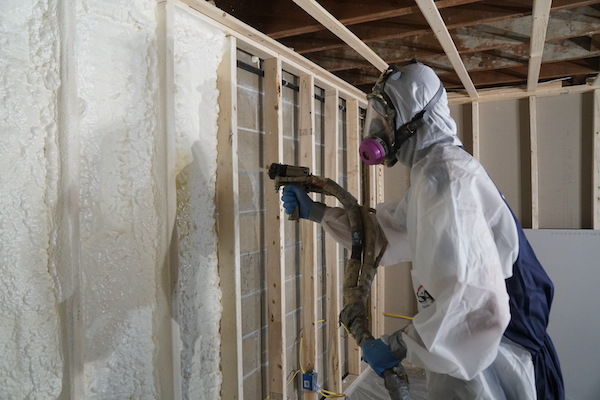In the quest for sustainable living and cost-effective home solutions, energy-efficient insulation emerges as a cornerstone of modern construction and renovation practices. Beyond merely trapping heat in winter and repelling it in summer, energy-efficient insulation offers a plethora of benefits that extend far beyond temperature regulation. Let’s delve into the world of energy-efficient insulation and uncover why it’s a vital investment for homeowners looking to enhance comfort, reduce utility bills, and minimize environmental impact.
Understanding Energy-Efficient Insulation
Energy-efficient insulation serves as a protective barrier, preventing heat transfer between the interior and exterior of a building. Unlike traditional insulation materials, which may degrade over time or fail to provide adequate coverage, energy-efficient options are designed to maximize thermal resistance while minimizing air leakage. By sealing gaps and cracks, these advanced insulation solutions create a more airtight building envelope, ensuring consistent indoor temperatures and reducing reliance on heating and cooling systems.
Benefits Beyond Temperature Control
While the primary purpose of energy-efficient insulation is to regulate indoor temperatures, its benefits extend well beyond mere thermal comfort. By reducing the workload on HVAC systems, energy-efficient insulation lowers energy consumption and utility bills, resulting in significant long-term savings for homeowners. Additionally, improved insulation can enhance indoor air quality by minimizing the infiltration of outdoor pollutants and allergens, creating a healthier living environment for occupants.
Environmental Impact
In an era of heightened environmental awareness, the choice of insulation material can have a profound impact on sustainability. Energy-efficient insulation options, such as spray foam, cellulose, or rigid foam boards, are often made from recycled or renewable materials and require less energy to manufacture. By reducing energy consumption and carbon emissions, energy-efficient insulation contributes to mitigating climate change and preserving natural resources for future generations.
Long-Term Investment
While the upfront cost of energy-efficient insulation may seem daunting, it’s essential to view it as a long-term investment rather than a mere expense. The energy savings realized over time can offset the initial outlay, resulting in a favorable return on investment. Moreover, energy-efficient insulation can increase the resale value of a home, appealing to eco-conscious buyers and distinguishing the property in a competitive real estate market.
Conclusion: Embracing Sustainable Living
In conclusion, energy-efficient insulation represents a fundamental aspect of sustainable living and responsible homeownership. By maximizing comfort, reducing energy consumption, and minimizing environmental impact, it offers a multitude of benefits that extend far beyond the confines of the home. Whether you’re building a new house or upgrading an existing property, investing in energy-efficient insulation is a wise decision that pays dividends for both your wallet and the planet. Embrace the power of energy efficiency and embark on a journey towards a greener, more sustainable future.

